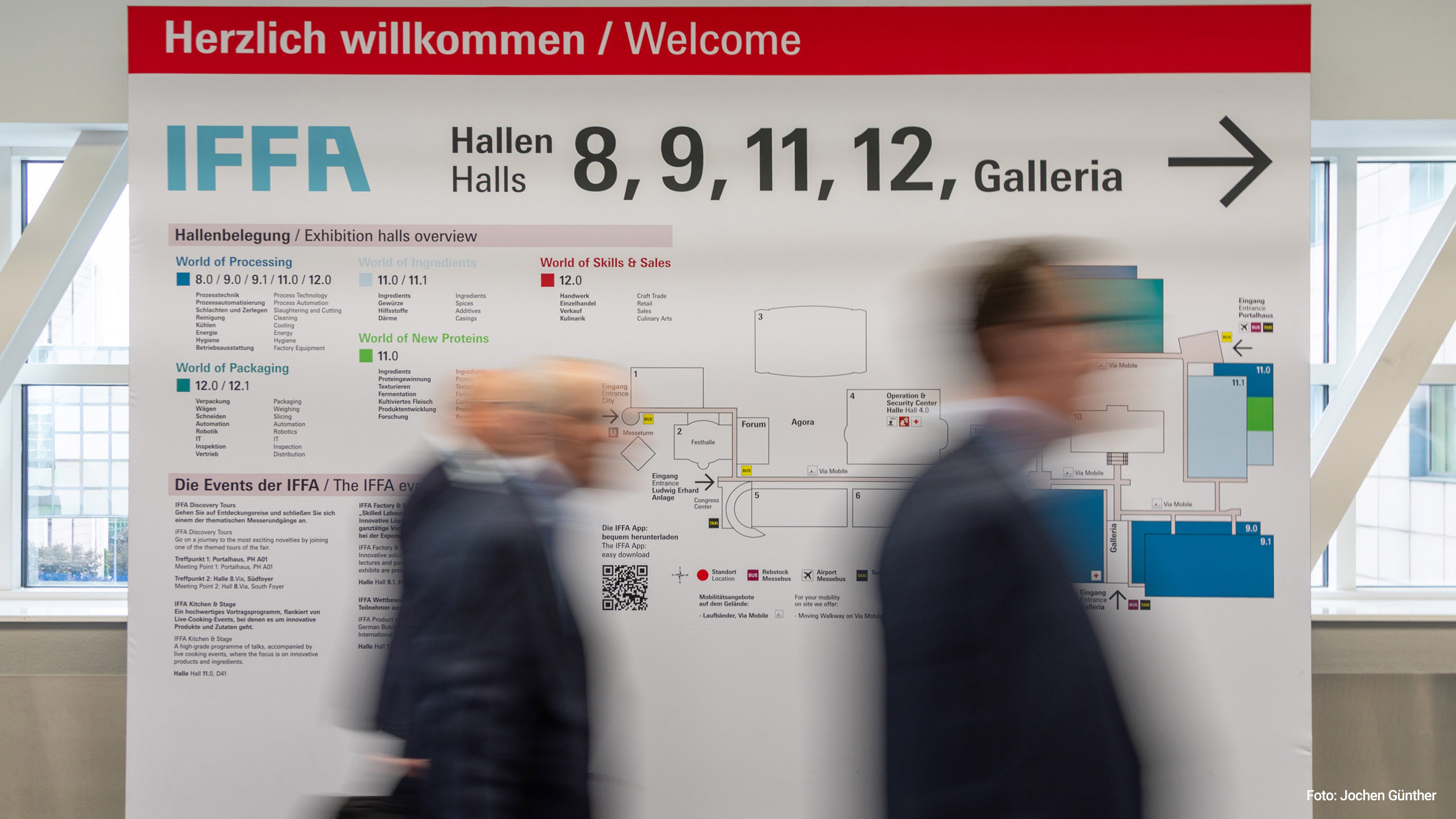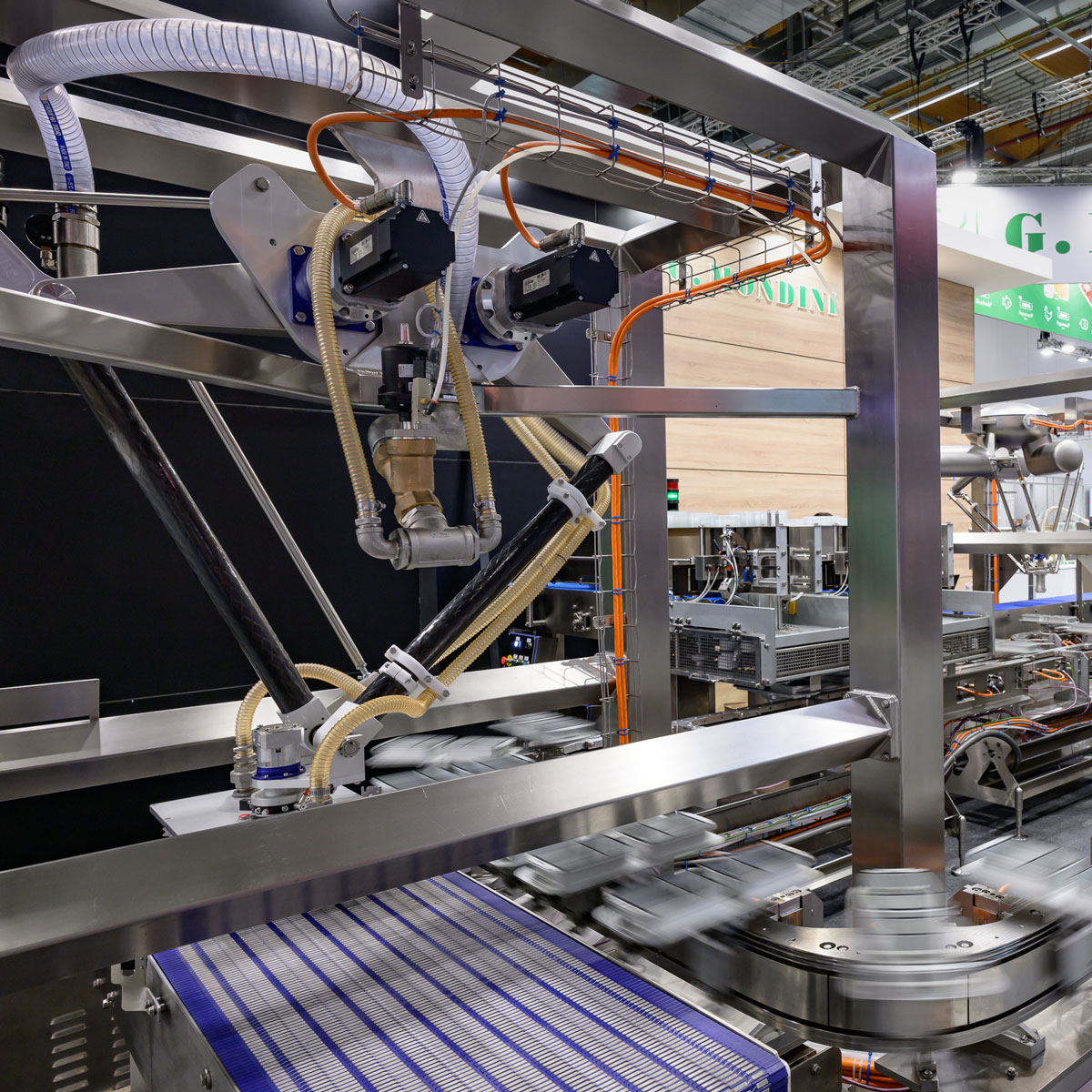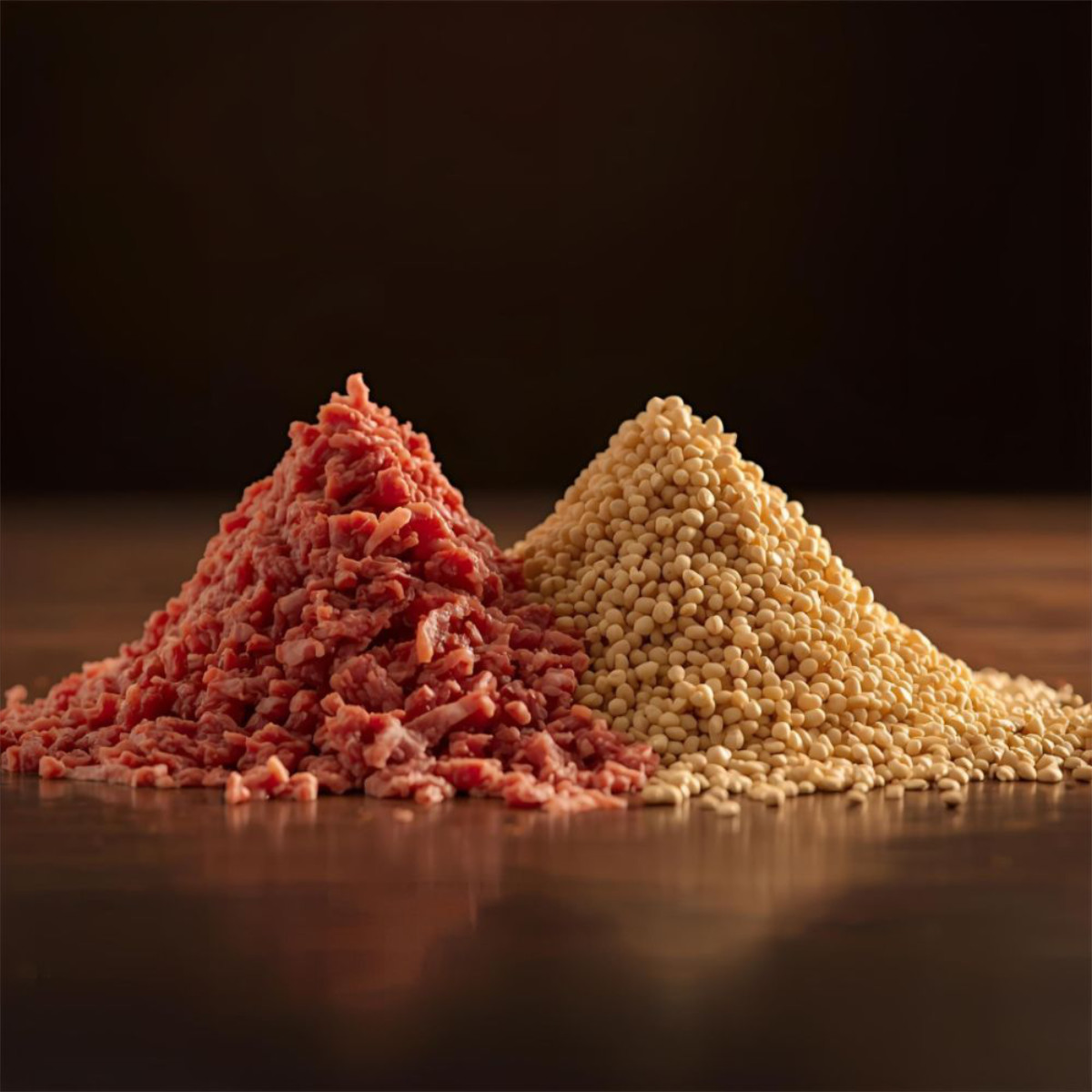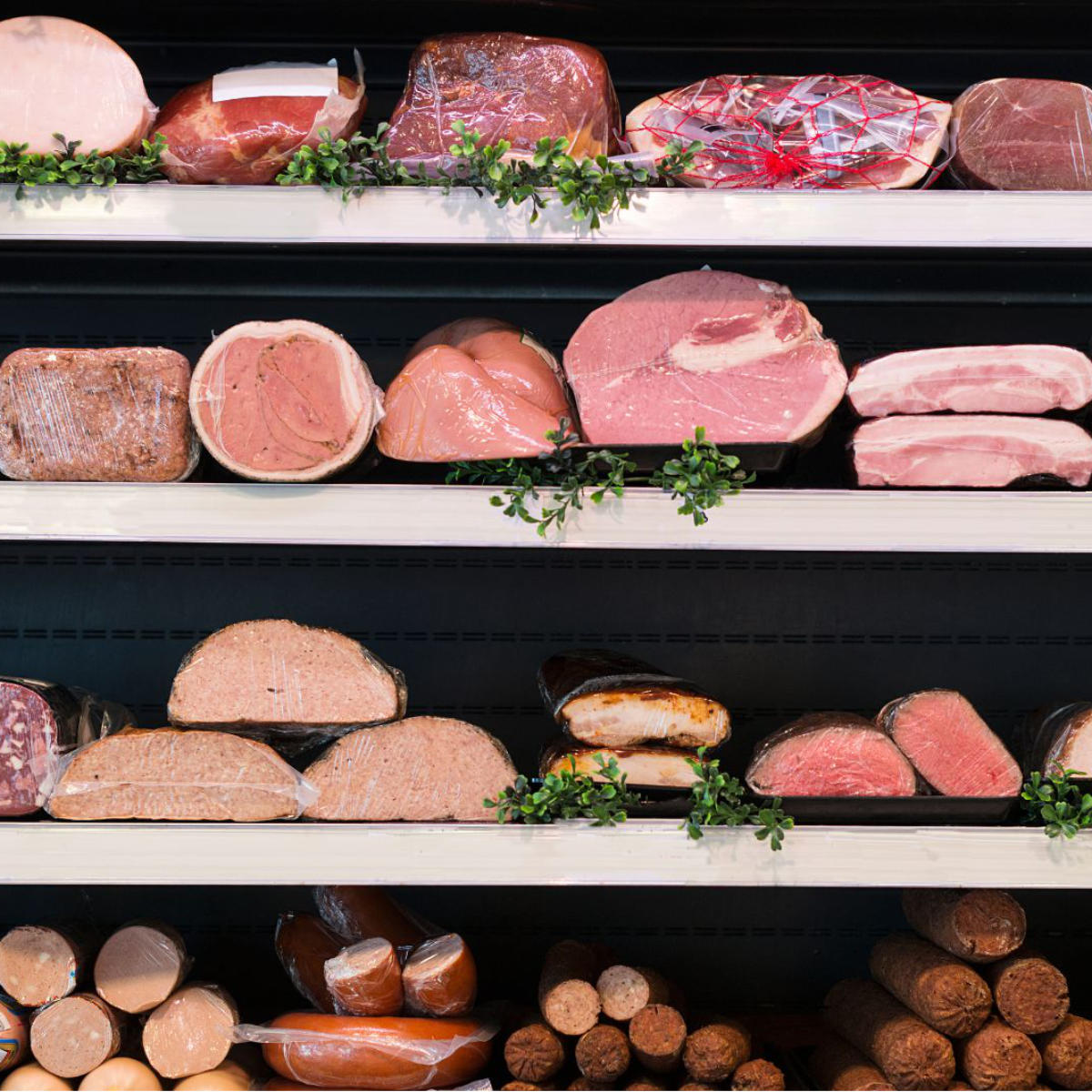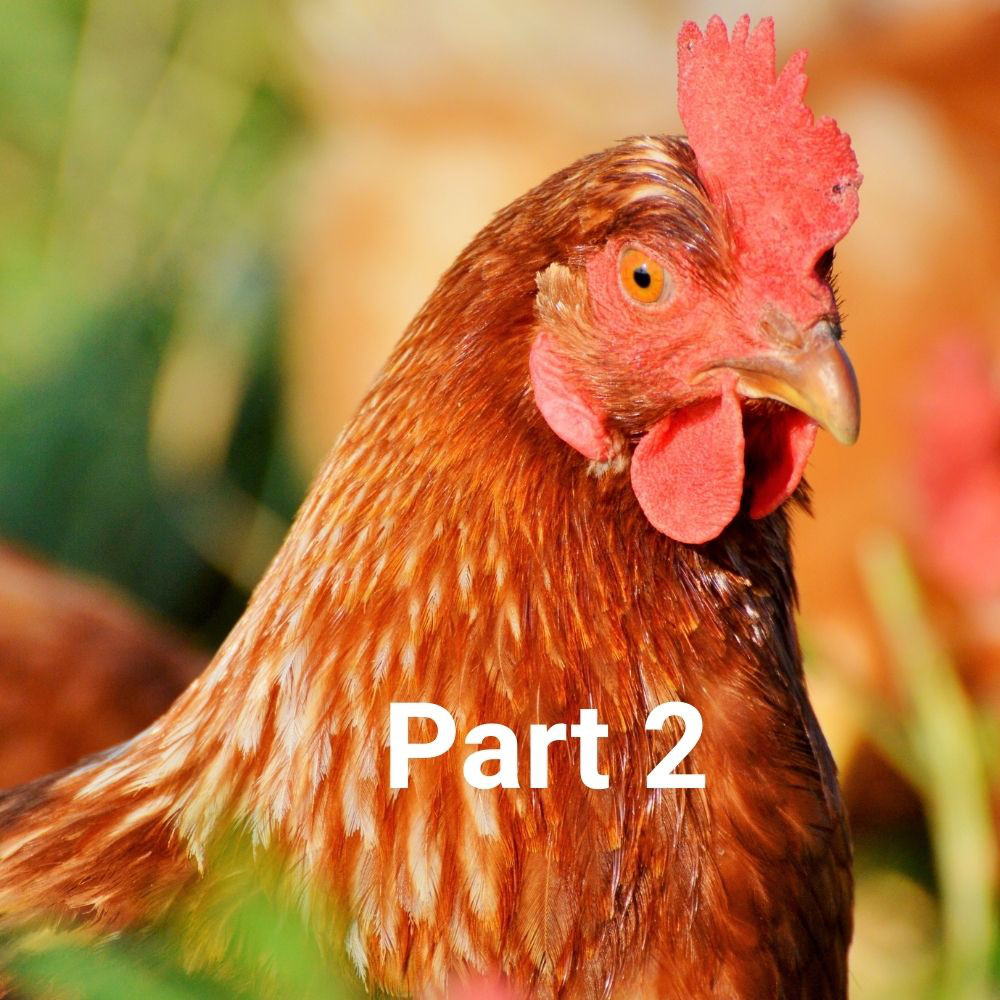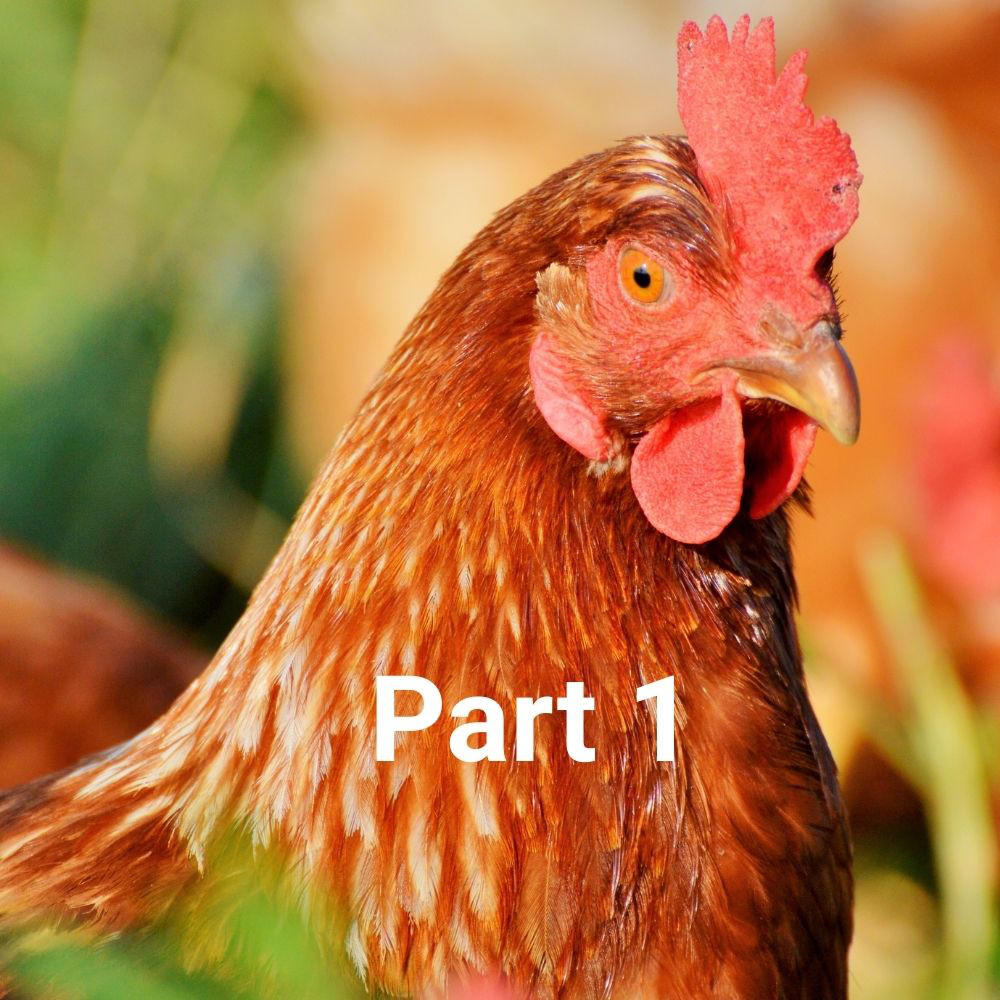Reading time: 5 minutes
By Elisabeth Frenz and Michael Hopp
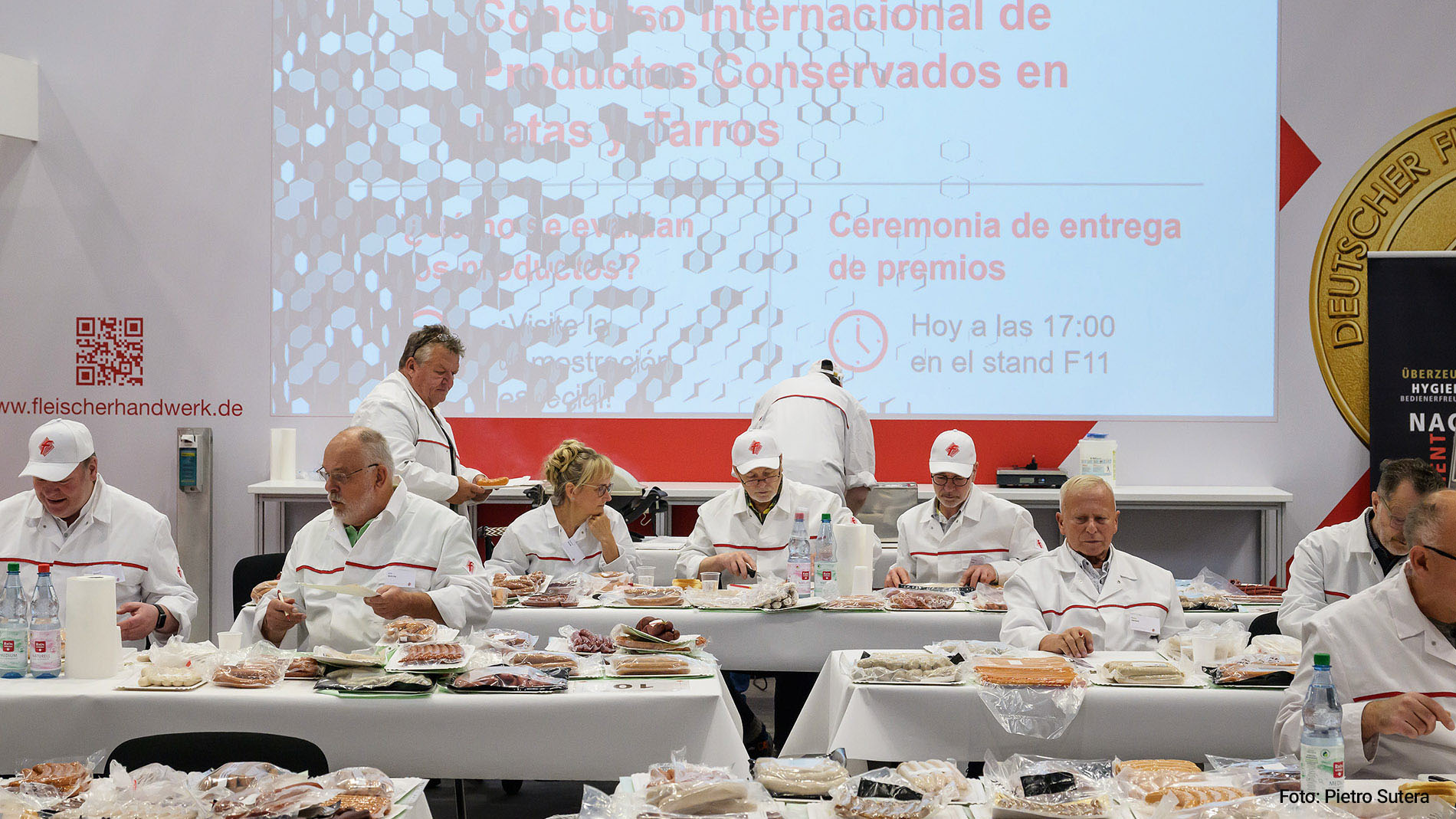
Anyone who visits the IFFA, as we did for three days, will first be overwhelmed by the sheer variety of impressions. Settle in for a rapid journey through time, from analogue, physical machines to digital technology that works in perfect silence, observable only in the precise movements of robotic gripper arms that use super-sensitive ‘vacuum tube lifters’ to grab chops and transfer them delicately into their blisters. Or indulge your curiosity and sample futuristic dishes based on alternative proteins – and savour the contenders in traditional butchery competitions, discovering the irresistible attraction ham can possess when it is produced with time and dedication.
And then this ‘We are the World’ feeling… After the fair, we learn that people from 144 countries came to IFFA. All of them are united in the unbridled enthusiasm they bring for all things new and everything that promises future business development. And another thing is in the air in those five large exhibition halls in Frankfurt: the belief in the transformative power that is generated when tradition and innovation come together.
Nutrition has never been as advanced as it is today
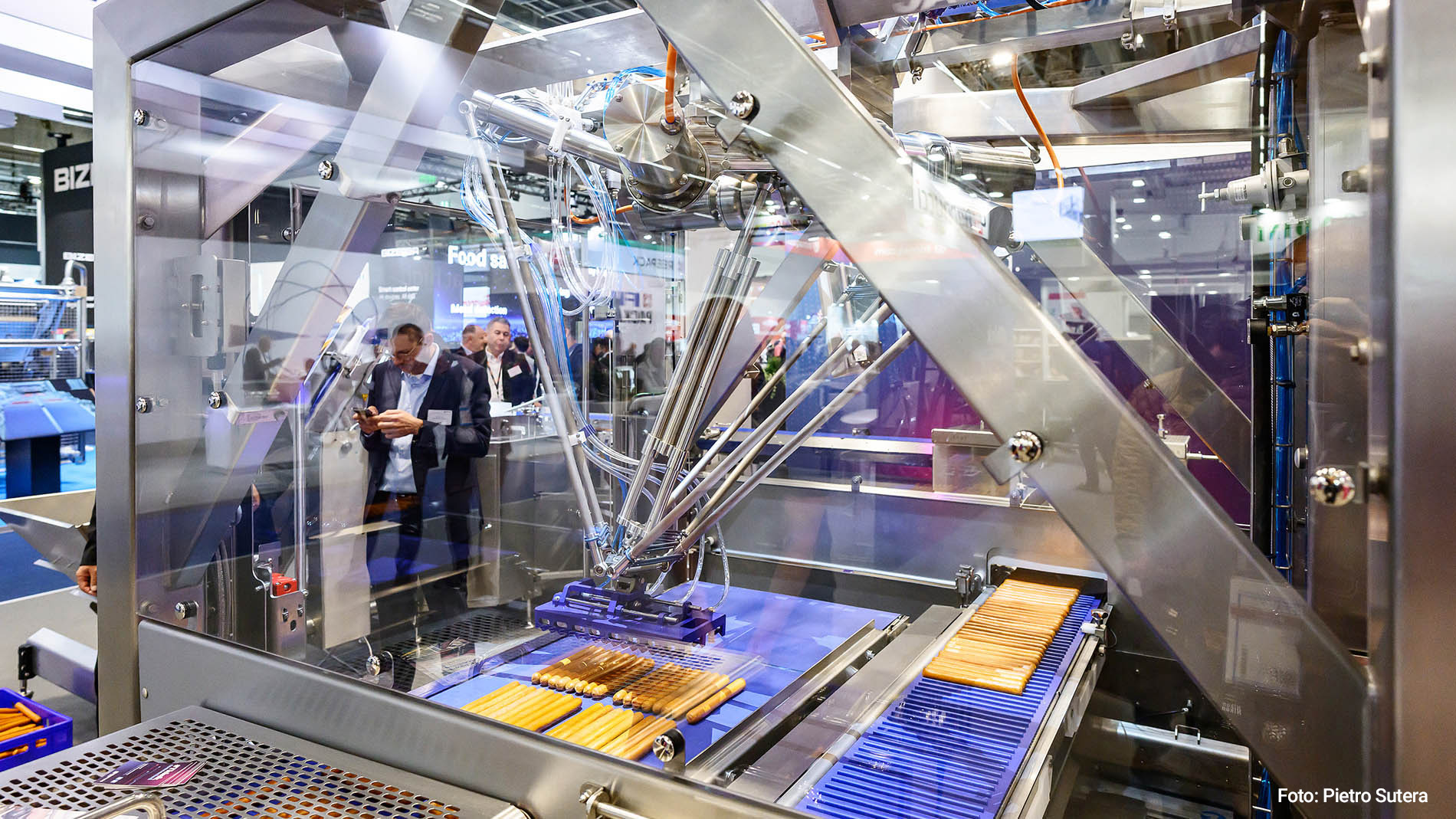
Is this supposed to be a food fair? Or a technology show? We ask ourselves this at the beginning of our visit, but by the second day, we see the question doesn’t really apply. By then, it’s become clear that the two are inextricably linked when we project our thinking about nutrition into the future – a future characterised by changed needs, climate change, and a rapidly growing world population.
Ever since man has walked the Earth, he has had to feed himself – but at no other time has nutrition been so highly developed. With so much knowledge and know-how, with thousands of years of experience combined with the latest technology and expertise, there has been a massive surge in innovation, building up to a flood of new products and nutritional perspectives that is now reaching consumers. Be it in the production and quality assurance of conventional meat products or the inception of new dishes, textures, and flavours in the field of alternative proteins – fresh thinking is leading the day and sustainable strategies are guiding the action. This is the deepest impression that the IFFA has left on us, and it is a lasting one.
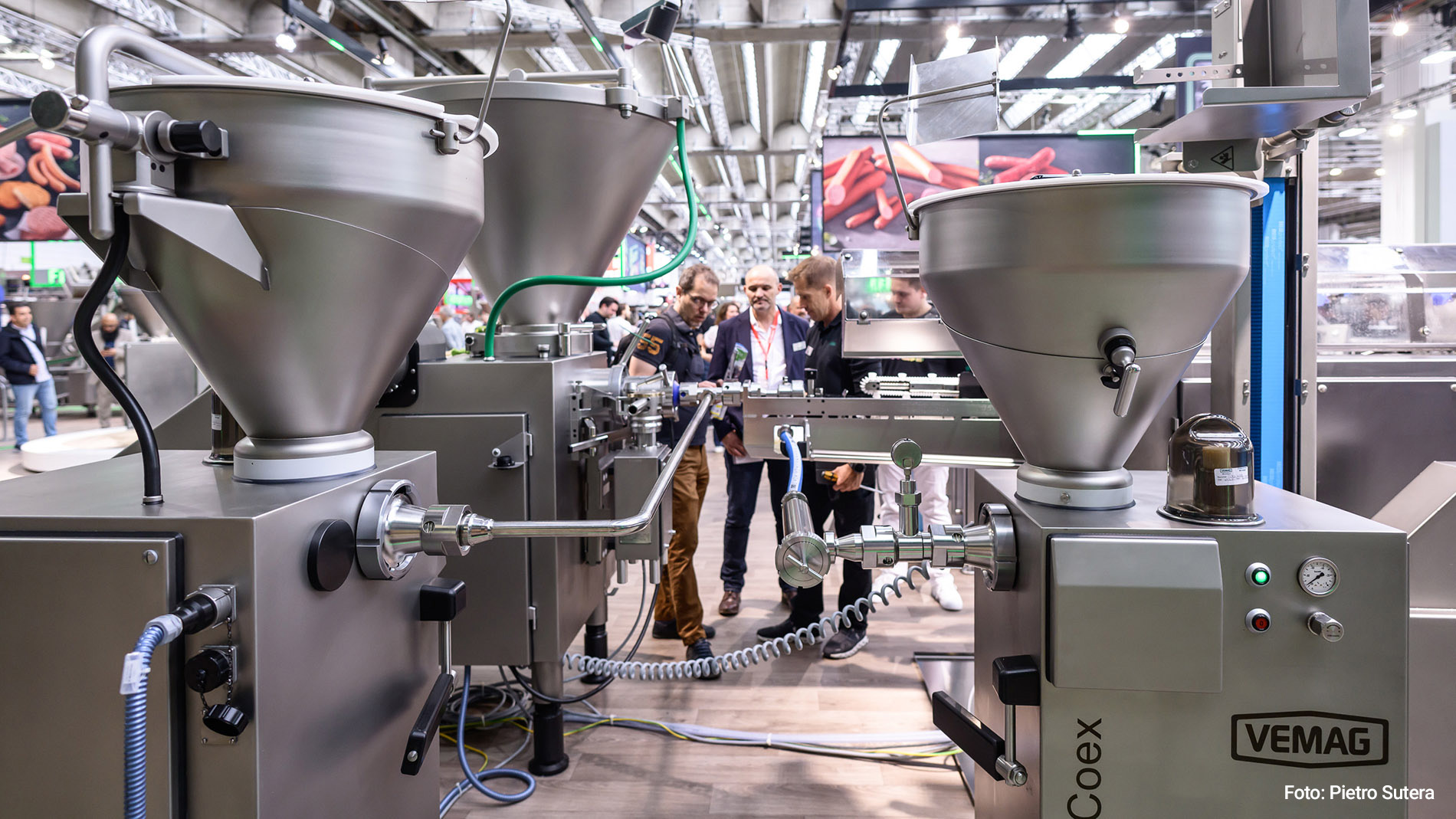
In Frankfurt, over 1,000 manufacturers impressively demonstrate how specialised the production and utilisation chain is, and how intricately all factors involved must work together to ensure that food in shops is reasonably priced, available in sufficient quantities and meets the high –and sometimes conflicting– demands of new generations of consumers. Food should be convenient, varied, innovative, safe, healthy, and reasonably priced, while also satisfying the increasing ecological vigilance that scrutinises the carbon footprint of its production.
‘Flexitarians’ are the fastest-growing consumer group
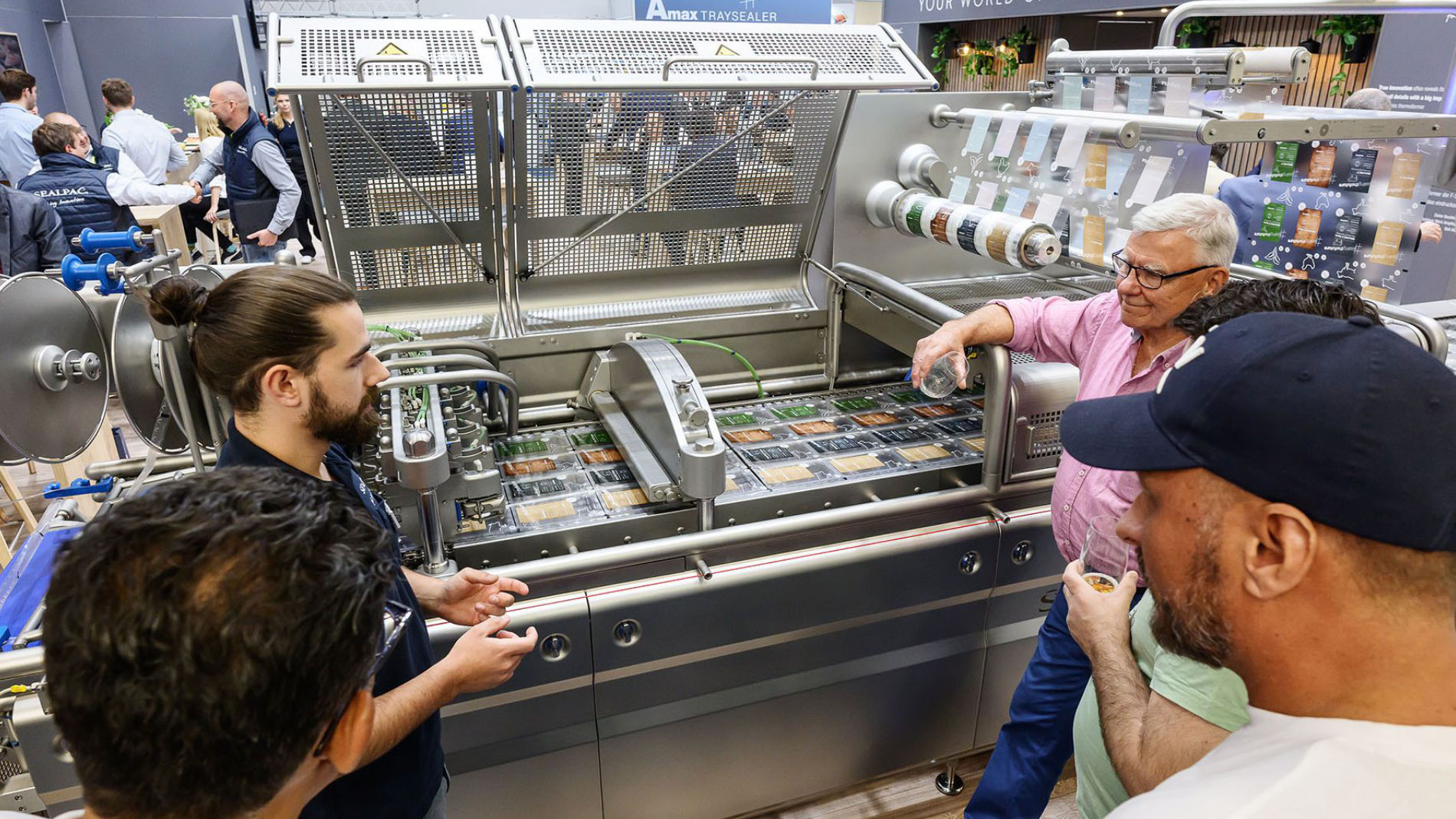
According to studies, 'flexitarians' are the fastest-growing diet lifestyle. As we hear on the IFFA stages, these are people who choose an individual and principled mix of plant-based and animal-based food – an attitude that resonates throughout IFFA. As the leading trade fair for ‘Technology for Meat and Alternative Proteins’, IFFA demonstrates that machines can go ‘both ways’. Leaving aside those technologies directly processing meat, most machines for processing animal and alternative products differ much less in the further process chain than we would have thought, making it attractive to large manufacturers to swing both ways. They can use their experience in sales and marketing, which benefits their range of meat-free products, making it easy for consumers to switch.
Similar or identical approaches can be adopted in areas such as automation, process control software, AI, quality control, and packaging. Every producer has the opportunity to achieve significant efficiency gains and improve their carbon footprint by embracing new technology. Smaller producers excel in creativity and regional integration, with many based on ideas rooted in the circular economy – a principle engrained in farming that is experiencing a comeback in new circumstances. All of the IFFA stands we visit present concepts for reducing resource consumption, from lightweight, algae-based packaging materials to reducing steam in snack processing.
Technological control over nutrition, free choice of protein sources
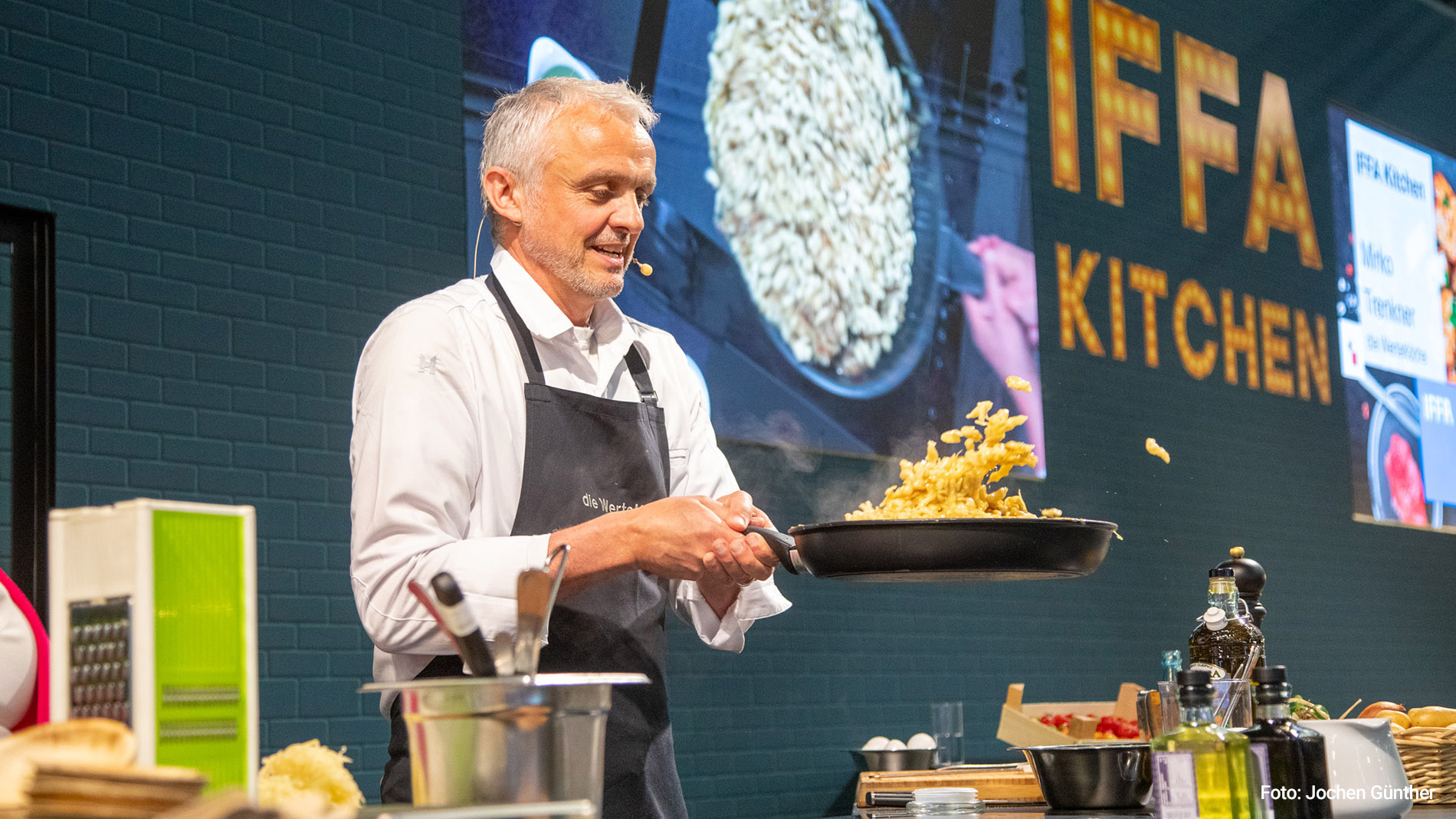
We are at the dawn of a new age in nutrition, or so we learn at the lecture panel of an international market researcher: the age of ‘Choice Explosion’. This scenario, which still seems futuristic in places, is one in which humans gain perfect technological control over nutrition and can adapt it at any time to diverse and changing needs and changing climatic conditions.
Alternative proteins obtained from cheaper, less sensitive raw materials such as soy, rice, or wheat have already reduced our dependence on carbon-intensive animal products. The global shift towards poultry meat improves the carbon footprint of meat consumption because chickens are only in the world for a few weeks to produce meat, whereas pigs and cattle take months and years, respectively. Chicken, on the other hand, offers a smooth transition to alternative proteins thanks to the quality of its meat and the variety of ways it can be prepared. The flavour of ‘plant-based chicken’ is so convincing that you forget there is any difference, as we are able to see for ourselves several times at IFFA. In the end, it is up to consumers to choose.
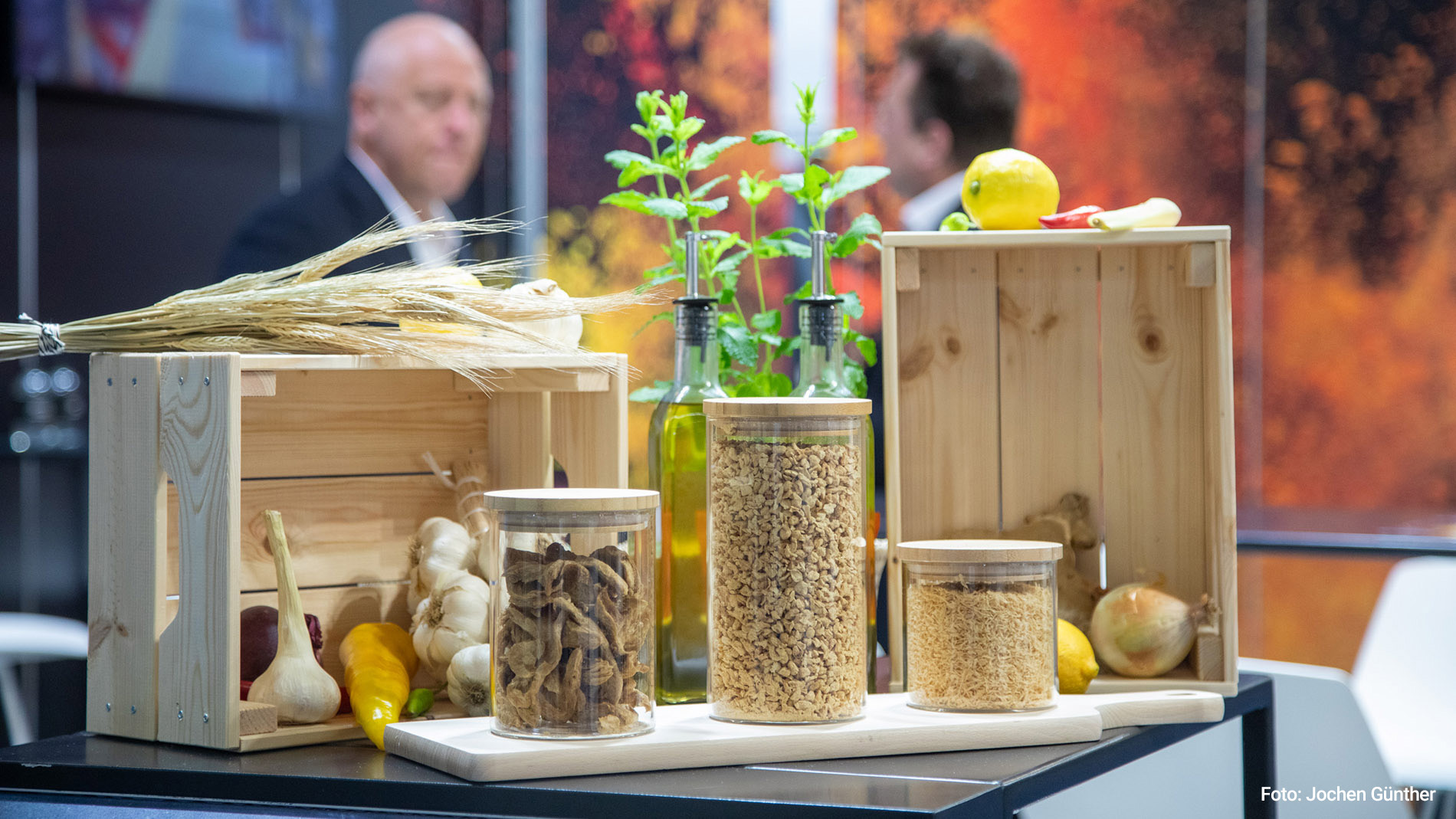
Plant-based, fermented, and cultivated – those are the three production types that suppliers and processors of alternative proteins make. The approaches are based on different raw materials, each of which is associated with different processing methods and technologies – which we get to experience and understand more concretely at the IFFA than we could by reading about them. Most of the brands we encounter are names consumers would never have heard.
Processes such as extrusion in the preparation of soya, pea, or lupin concentrates, precision fermentation for producing egg and milk proteins from yeast, fungi, or bacteria, and producing ‘real meat’ in a bio-reactor (not yet approved in Europe, as lamented at the IFFA), are constantly being optimised with regard to resource consumption.
At the ‘Innovation in the Food Industry’ panel in the ‘IFFA Kitchen’, we learn how much start-ups are contributing to research and innovation in this area, as well as how much money is being invested internationally in this future market.
It’s all about the flavour
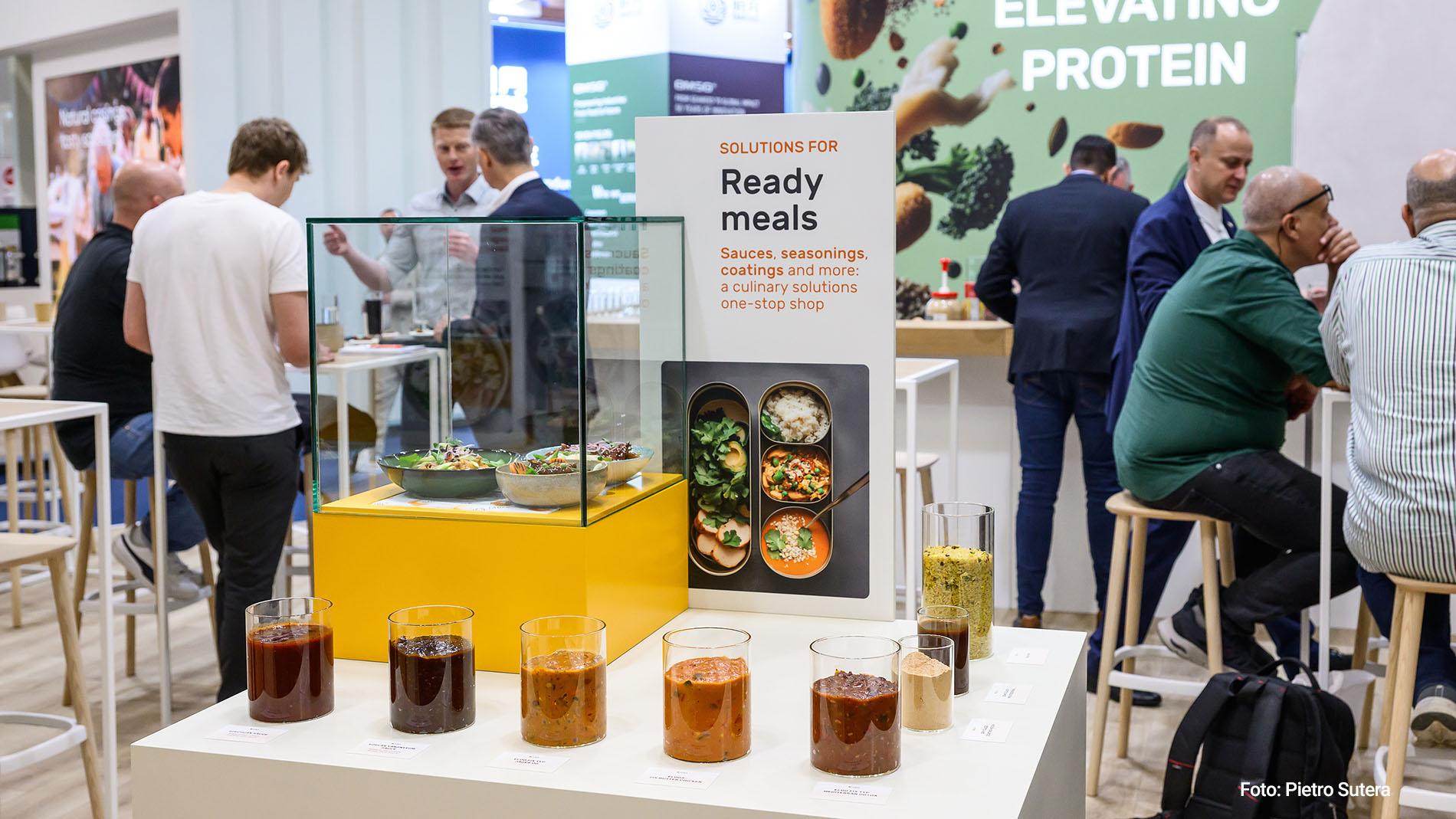
What are we having for dinner today? Something to go with this delicious Madras curry...
There is a large area at IFFA dedicated to ingredients and spice mixtures. As most meat substitute products are neutral in taste, it is essential to prepare them using pastes, sauces, and spice mixtures. This leads to new and varied dishes and flavours, and is a development that can be combined with meat consumption.
This is also boosting the fast-growing market for ready-made and pre-cooked products, which are also being marketed to the gastronomy industry, expanding the range available there – thanks in part to innovative packaging and digital delivery channels. Multifunctional meal boxes containing a variety of ingredients and components that can be combined in different ways are offered to food manufacturers and service providers, enabling them to create different dishes from the same basic ingredients.
Foodtech Now! The new diversity of food offerings is unstoppable – and, as was evident at IFFA, there is a place and an equal role for everyone in this brave new world of food: all the way from the artisan-driven quality meat industry, which has access to the best machines and tools, to the data-driven process intelligence in the production of alternative proteins.
* Elisabeth Frenz and Michael Hopp are journalists and content experts who have been working for the “Foodtech Now!” content platform for several months. IFFA 2025, which has just ended, was the first IFFA exhibition that they visited. Their impression: “The industry represented at IFFA offers much more than we have been able to discover through research so far.” Specifically? “What we saw goes beyond meat and protein processing; it’s the future of nutrition.”
